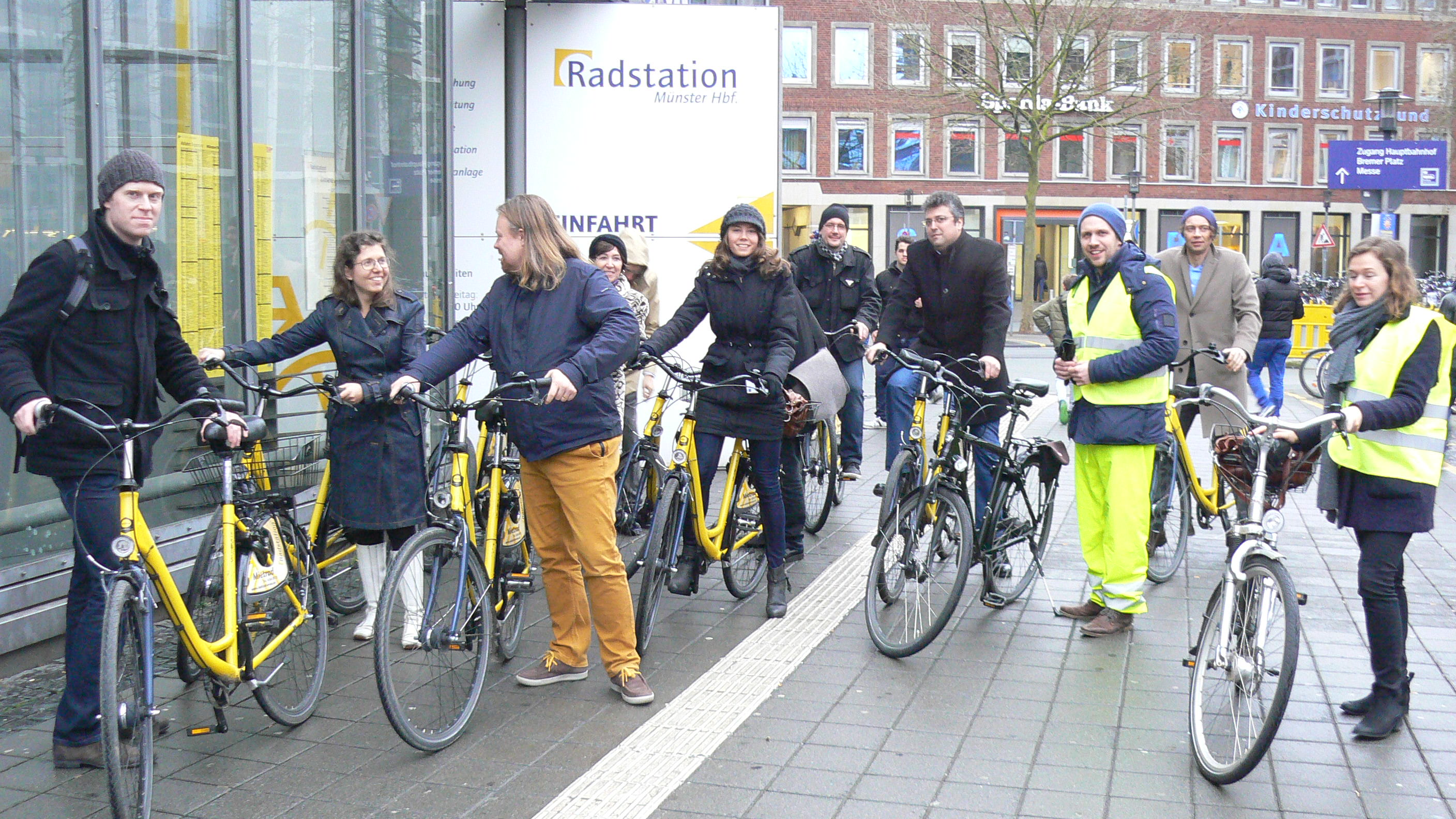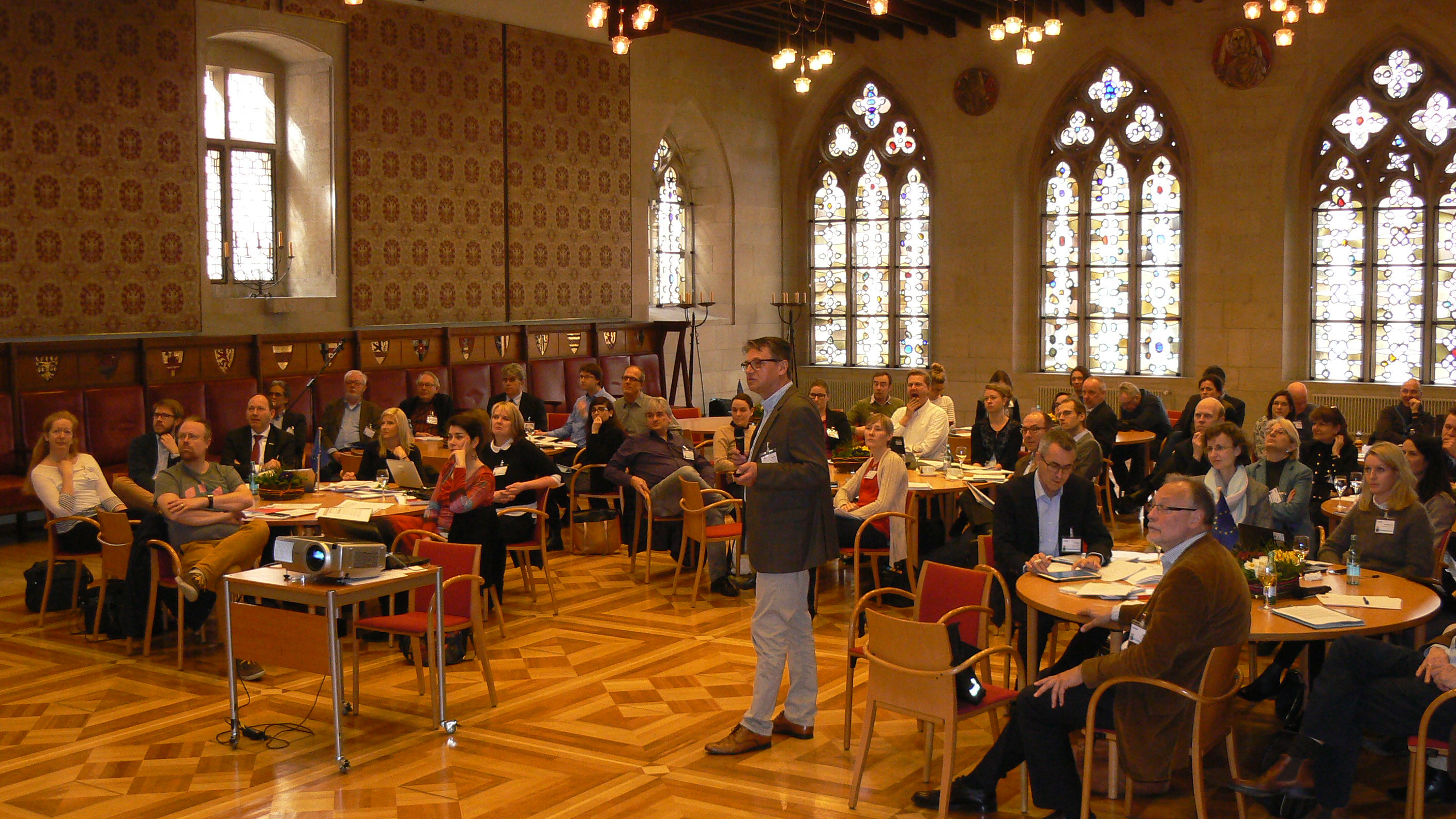
Interview with Johanna Rolland, President of EUROCITIES
01 October 2016
by Jonathan Andrews
Nick Michell spoke to Johanna Rolland, President of EUROCITIES, about the network’s achievements over the past 30 years
What have been some of the highlights of EUROCITIES’ 30-year existence?
We’ve come a long way since 1986. Our network, which started out as six founding members, has grown to over 135 major European cities in 39 countries, representing 130 million citizens. We now network with over 2,500 city politicians, experts and officials, which is an achievement in its own right. What has been striking about our membership is that we have continued to attract cities outside the EU, who see the value of being part of a wider network to share experience and collaborate on common problems. In particular, under the presidency of Wolfgang Tiefensee from 2002 to 2004 we were able to engage members from the EU’s enlargement states, and more recently we continue to attract members from countries such as Turkey.
We have been successful in positioning EUROCITIES as the ‘go to’ urban network. EUROCITIES gives members the opportunity to share knowledge and experience, and have a say in European policy making. We know that EU legislation has a direct impact on cities yet we are not directly involved in the policy making process. Our collaboration through EUROCITIES has demonstrated our capacity to highlight the bottlenecks and opportunities for cities within EU legislation.
EU institutions see us as a direct channel to city leaders and urban expertise. We are regularly invited to contribute on issues such as migration, urban mobility and air quality. We participate in a number of expert groups and have given evidence at European Parliamentary hearings. It’s a major first step, but making cities’ voices heard is an ongoing challenge.
Much of our work is long-term and intangible. But I would consider our many lobbying successes as highlights. For example, in its 2009 white paper on climate adaptation, the European Commission recognised local authorities as key to climate adaptation efforts, and the 2014-2020 multiannual financial framework allocated specific funding for climate adaptation at the local level. We have been instrumental in pushing the role of urban solutions in addressing climate change, and it was rewarding to see cities explicitly mentioned alongside other subnational actors in the Paris Agreement reached last December.
We have actively contributed to strengthening the urban dimension of the European Structural and Investment Funds for the period 2014-2020. Following two years of lobbying, we were able to secure acknowledgement for the strategic importance of transport in cities in the Commission’s 2010 action plan on urban mobility. We were recently invited to contribute to a meeting of member state experts on urban mobility, and are involved in a number of high profile projects and campaigns to promote the issue, such as European Mobility Week.
The launch of the EU’s Smart Cities and Communities initiative in 2011 represented a transformation of our cities into energy efficient, sustainable and low-carbon environments, and secured new funding from which many of our cities benefit to develop innovative solutions.
Of course, I can’t finish without mentioning the launch of the Urban Agenda for the EU earlier this year. It is fitting that in the same year we turn 30, cities are being given a bigger role in EU policy making. Our job now is to continue this momentum.
How has the role of cities changed in Europe, and how has EUROCITIES contributed to this?
Since the 1980s we have witnessed a significant, positive shift in the way EU policy makers view the urban agenda. There is growing recognition of the important role cities can play in delivering the EU’s strategic objectives and, now more than ever, in overhauling the European project.
Over the past 30 years, EU regional policy has developed increasingly ambitious programmes to support urban regeneration, recognising that investing in cities will bring benefits to Europe as a whole. EUROCITIES has been constantly pressing for policy making to reach beyond nations and regions and to involve cities directly, which culminated this year with the launch of the Urban Agenda for the EU.
This represents a new level of engagement for cities in EU policy-making, working in partnership with EU institutions and national governments to shape policies and funding that have a real, positive impact on the ground, and ultimately improve quality of life for citizens. Of course, this is just the beginning, and there is much to be done to ensure that we build on this ‘urban’ momentum, but I know that EUROCITIES is committed to making the urban agenda work for cities.
What is the value for cities of being part of the network?
EUROCITIES is a collaborative network, and as members we recognise the value of being able to share experiences, bounce ideas off each other and learn from others’ successes and mistakes.
Large European cities face many of the same challenges, and being able to see first hand how our peers are confronting these is invaluable. EUROCITIES gives us access to early intelligence on forthcoming EU programmes and calls of interest to us, and enables us to tap into funding opportunities that we otherwise might not be able to.
So much EU policy touches on urban areas, so being part of EUROCITIES gives us a strong political voice towards EU institutions.
What’s more, as member cities, we can depend on a highly qualified and committed team in the EUROCITIES office. The consolidation of the Urban Agenda for the EU demonstrates how years of pushing urban solutions to the forefront and calling for a greater role for cities is paying off.

What challenges do you see for cities going forward?
European cities are at the frontline of major transitions: demographic, environmental, digital and democratic, among others. At the European level, Brexit, the refugee crisis, unemployment–especially among young people–and growing inequality are all contributing to the crisis of the European project. We need new political governance and a reinforced political vision for Europe.
I am convinced that cities can give new impetus to meeting these challenges and that we should see our cities as deliverers of change. We must strengthen the bond between the EU and its citizens. The EU can be revived if we look to our cities.
We need to look to future generations and empower and support young Europeans who will build the future of Europe. This is why we decided to invite young urban professionals to contribute to our 30th anniversary publication, being launched at our annual conference in Milan on 16 November. It is their generation who will need to meet the challenges facing cities in the future, and we can already learn a lot from their fresh approaches and new ideas. Engaging our citizens in urban governance is no longer a choice, it’s a necessity.
In your time as president, have there been any personal highlights?
It’s been an exciting few years to be EUROCITIES president. Cities have gained new recognition in Europe with the launch of the Urban Agenda for the EU. I am keen that we build on the momentum generated by the agenda so that cities can reach their full potential in Europe.
The Paris Agreement reached at COP 21 last December showed explicit recognition for cities as part of a global climate deal. This was a particular highlight. In Nantes, like my colleagues around Europe, we are committed to addressing climate change. We are now giving a stage to non-state actors through the first world summit ‘Climate Chance’ (Nantes, 26-28 September).
I am humbled by the response of my peers to the refugee situation. Many city leaders show incredible determination, compassion and leadership, contrasting with sluggish responses at national and European level. I am proud that EUROCITIES is able to communicate the efforts being made in cities to welcome and integrate people fleeing persecution and hatred.
How important is it to recognise that local governments can play a vital role in a multilevel governance structure?
It is crucial that local governments are recognised as a vital ‘ingredient’ in the multilevel governance structure. The European project is facing growing opposition, yet local governments provide the critical link with citizens that we so need. By working with the national and European levels, cities can help to rebuild trust in Europe and ensure that the decisions being made at the top make a difference to the people at the bottom. We have to keep in mind that 70 percent of European citizens live in cities. They deserve to be taken into account in the European policy making process. This is not a straightforward objective, nor is it an unobtainable prospect. It is a genuine and essential requirement for a fairer, more united, more cohesive Europe that is closer to its citizens.

How much progress has been made in shifting the focus of EU legislation to a way that allows city governments to tackle strategic challenges at local level?
Despite progress by the EU institutions to better involve cities in EU policy making, it is difficult to report a real shift in the focus of EU legislation towards cities. We have been invited to participate in expert groups, Parliamentary hearings and of course the urban agenda has been launched, but nevertheless EU legislation remains largely conceived through a top-down approach. But it remains clear that many of Europe’s biggest challenges are reflected and concentrated in cities, so the majority of EU policies are actually helping to resolve urban problems. What we hope to see now, especially with the new Urban Agenda for the EU, is a shift away from working ‘on’ cities towards working ‘with’ cities.
What are the benefits of forming an EU urban agenda?
There is growing recognition that cities can make an important contribution to the EU’s strategic objective, providing we are properly resourced and empowered.
The Urban Agenda for the EU solidifies a new way of working that gives cities a greater say in shaping
EU policy and funding. Our input can help shape policies, strategies and funding programmes so that they effectively target the real needs on the ground.
What can you predict for the next 30 years of the EUROCITIES network?
Despite tightening public budgets and political shifts, membership of EUROCITIES has remained strong, as cities continue to see the value of being part of a collaborative and influential European network. I know from discussions with my colleagues, fellow European mayors, that we share a strong ambition and commitment towards Europe. As mayors, we need a place to share our vision. EUROCITIES is the perfect network to have genuine discussions and make our voice heard.
And with the challenging times we’re facing in Europe today, I think cities will become increasingly important in rebuilding and revitalising the European project. Networks like EUROCITIES will be critical for making sure cities contribute fully to a ‘reinvented’ Europe.
As a mayor, as a citizen, I have hope for the future and for Europe. The EU needs to rebuild a real political vision, and look to the long term. Europe’s legitimacy depends on its citizens, strong and shared values, social justice, cohesion, and opportunities now and for future generations.
I am personally ready to get involved and contribute to building this Europe.













